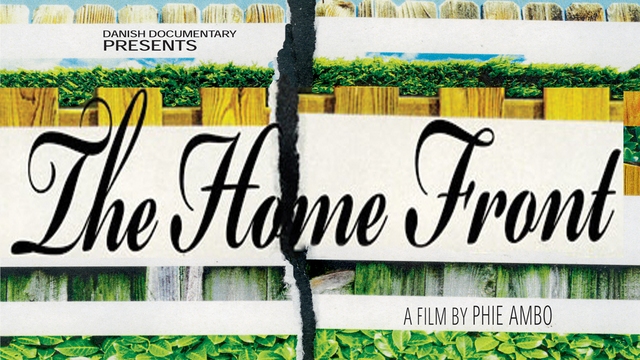All over the world neighbours are at war with each other. In Denmark the government employs an army of officials to break up the backyard slagging matches and this doc joins them for the hilarious ride. Follow them through the complex and bitter disputes that erupt over noisy dogs and slaughtered shrubs. And, as the bizarre and paradoxical relationships of the neighbours are revealed, we discover what fences really mean to us and how friends become enemies.
"You're not allowed to stare into neighbours' lots," an old and dishevelled man, hunched over his walking stick, says.
"I don't have time for this", is the bemused reply of the gardener who is trimming the hedge in front of him. Disgruntled the old man walks away.
"He's been snooping around. Thank god there isn't much to see!" he mutters to himself.
This is just one of the endless backyard squabbles that Mogens Peuliche, the Danish inspector of boundary lines, has to take on.
"In neighbourhoods like this it's important that hedges and fences fit nicely so that everyone is comfortable living as close together as they do." Unfortunately for Mogens, more often than not they don't. From the man who cuts down his neighbour's trees to the man whose dog won't stop barking, to Flemming Anderson's controversial hedge, Mogens has seen it all.
While it may all seem trivial, for the participants the disputes take on epic proportions.
"I probably wouldn't have bought this place if I'd know what kind of neighbours I'd get" sighs one suburbanite. So why are these seemingly simple conflicts so difficult to resolve? In many cases it becomes more about how the dispute makes them feel than the actual hedges and fences.
"Our relationship is strained. I constantly have this feeling: They've been in my garden", says a lady whose neighbour hopped over her fence and chopped down her trees.
This quirky, funny doc gets behind the mind games of suburban neighbours at war and discovers what these strange and often petty disputes are all about.
"Where does your freedom end and that of your neighbour begin? It's a sharp and sudden line." For these individuals where this line falls can make all the difference.

Official Selection, IDFA, 2010

Official Selection, CPH:DOX, 2010

DocuWeeks Selection, 2011
 All over the world neighbours are at war with each other. In Denmark the government employs an army of officials to break up the backyard slagging matches and this doc joins them for the hilarious ride. Follow them through the complex and bitter disputes that erupt over noisy dogs and slaughtered shrubs. And, as the bizarre and paradoxical relationships of the neighbours are revealed, we discover what fences really mean to us and how friends become enemies.
All over the world neighbours are at war with each other. In Denmark the government employs an army of officials to break up the backyard slagging matches and this doc joins them for the hilarious ride. Follow them through the complex and bitter disputes that erupt over noisy dogs and slaughtered shrubs. And, as the bizarre and paradoxical relationships of the neighbours are revealed, we discover what fences really mean to us and how friends become enemies.
 Official Selection, IDFA, 2010
Official Selection, IDFA, 2010
 Official Selection, CPH:DOX, 2010
Official Selection, CPH:DOX, 2010
 DocuWeeks Selection, 2011
DocuWeeks Selection, 2011





